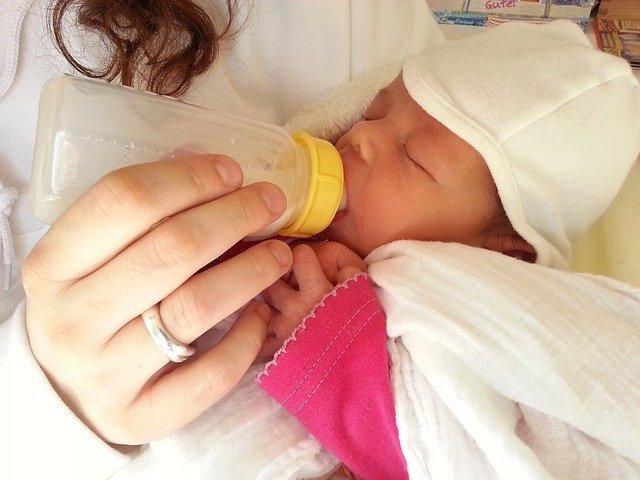A Guide For A Mother Of A Newborn Baby
Usually there is very little or no information known to most of the parents at the time of the arrival of their first baby. There are many new questions that come to the mind of the parents of a newly born baby like how to handle their babies first cold, how to make babies sleep, what kind of food is good for them till the age of 6-9 months, how to soothe babies teething pain, signs that tell if the baby is ready for the solid food and why the solid food is not good for them in the initial few months and so on. The list of such questions is endless.
We get a bunch of different advice and opinions on such questions from everyone we talk to and since babies don’t come with a “manual” – it’s hard to know what the right thing to do is. Thus, it is very important that the parents should educate themselves with the right ways or techniques to take care of their newly born babies.
First Weeks With Your Newborn
What to expect
Expect to feel tired for a little while. Try to rest when baby rests. Newborn babies typically sleep 16-20 hours a day in total so it will give you plenty of time to rest. Eat smart and be smart with the visitors. If you are breastfeeding, you will need to eat plenty of nutritious foods as your health is paramount. The nutrients and the immune system in your body will be passed to your baby.
Accept as much support as you can from your partner and family. If your partner can take a week or two off work, this will give you both time to bond with your newborn. Your partner or family can also take over some of the day-to-day chores so you can rest, particularly if you are breastfeeding. If you are bottle-feeding, your partner can help too. If it’s not possible for your partner to get time off, see if a close relative can come and provide the same kind of care.
Holding a Baby
Newborn babies have not developed a strong head support yet in the first few months. In order to hold properly and support, one hand must hold the baby’s head and neck or cradling his head around the arm. The other hand is to carry or cradle his body. We must continue holding baby like that until he can support his head which normally takes a few weeks and months. You will know that he can support his head when he can already flip to lay on his tummy and lift his/her up like below baby image. Watch this video for more tips on holding baby

Feeding
Newborn babies tend to feed every two to four hours – some days more often, especially if baby is breastfed. It can also be several weeks before a pattern of feeding and sleeping emerges.
Babies have very small stomachs and need to feed more frequently. Bottle-fed baby will feed less often than breastfed babies due to formula milk takes longer to digest than breast milk.
Breastfeeding can be a learning experience for some new moms. From finding a comfortable breastfeeding position to avoiding sore nipples, some breastfeeding facts are covered in the breastfeeding tips.
Sleeping
Newborns can sleep for up to 18-20 hours in a 24-hour period, but some do not. All babies are individuals and have different sleep patterns and needs. Sometimes their sleep will follow a pattern for a few days and then change.

In order to keep a baby settles, we should create a similar environment as they were when in mothers womb. By wrapping them in baby wrap or baby swaddle, they can feel secured and will not have startle reflex. Make sure the cloth used for baby wrap or swaddle is from breathable material to avoid overheating the baby.
After the first few weeks, their sleeping pattern will start to settle. At this stage babies commonly will have one five-to-six-hour sleep, several two-to-three-hour sleeps and some shorter naps.
Changing Nappies/Diapers
The first few days after born, newborn baby’s stools are normally black in colour and sticky. This is called meconium and it is normal as it contains mucus, skin cells, and amniotic fluid which were ingested while the baby was in the womb. This black stool usually does not smell.
Over the first few days, the colour of the stool should gradually change from black to dark green, then yellow. After 1 week, stool should no longer be black. If a black colour persists, seek medical advice. It could mean that there is some bleeding in the digestive system.
In the first weeks, you will probably need to change baby around 8 to 10 times a day, so get everything set up:
- Change table or change mat at the right height to avoid backache
- Disposable nappies/diapers or 24-30 pure cotton cloth nappies, fasteners, nappy liner and pitchers
- Baby wipes
- Baby powder or nappy rash or barrier cream
- Nappy bucket with lid, for soaking cloth nappies (or for soiled disposable nappies)
- Nappy soak or a good but mild soap powder with disinfectant










Leave a Reply
Want to join the discussion?Feel free to contribute!